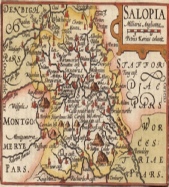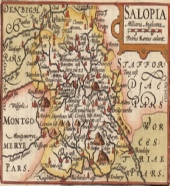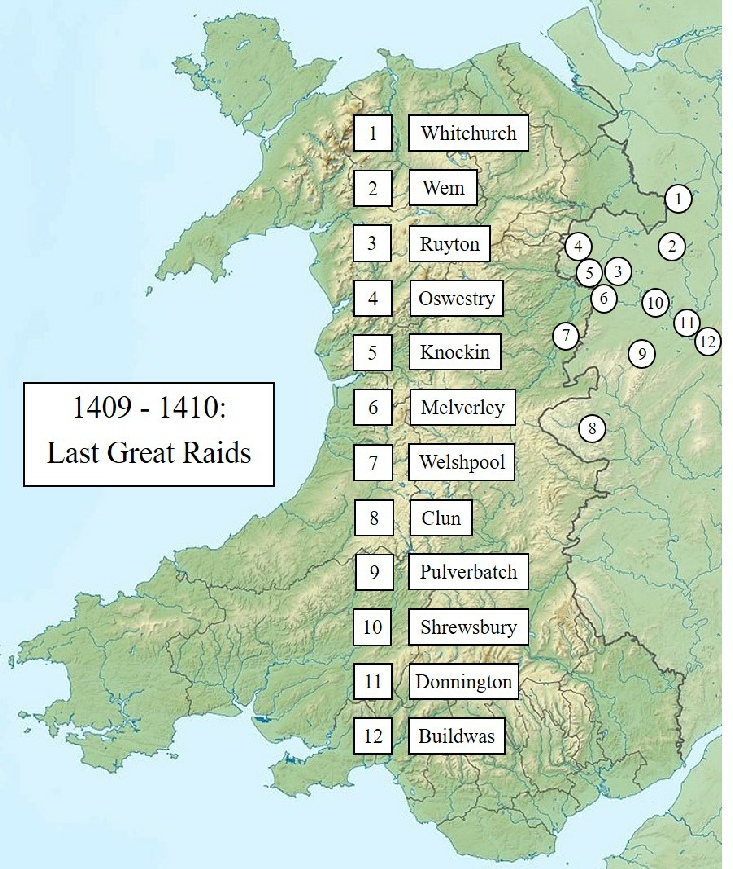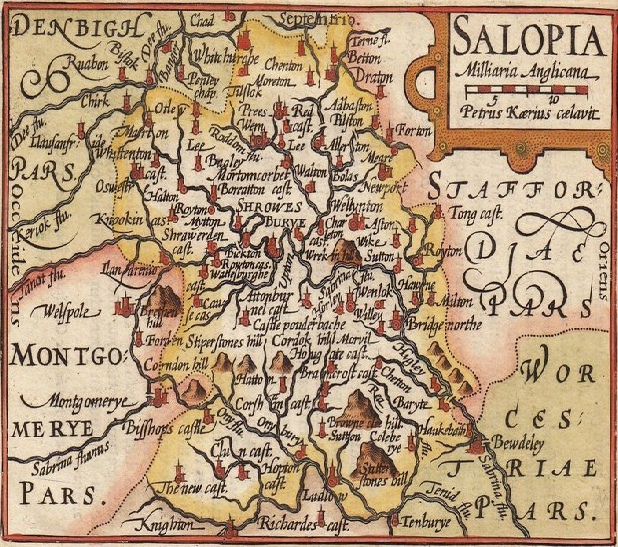Henry I V’s main strategy was to invade Wales with large armies in response to attacks by Glyndŵr’s forces. These Royal Expeditions needed to be sustained by vast amounts of provisions, however, which were usually obtained from the border counties of Cheshire, Shropshire and Herefordshire.
V’s main strategy was to invade Wales with large armies in response to attacks by Glyndŵr’s forces. These Royal Expeditions needed to be sustained by vast amounts of provisions, however, which were usually obtained from the border counties of Cheshire, Shropshire and Herefordshire.
For this reason, Owain’s men regularly attacked over the border to confiscate food and burn crops that would otherwise have been used by the English armies. By August 1404, for example, most of the communities of Shropshire had made truces with Owain to limit further damage to their lands.
After the fall of Harlech castle in early 1409, Glyndŵr was without a suitable base from which to hold parliaments and exhibit his princely status. He reverted to the guerrilla tactics used at the beginning of the Uprising - and many of these attacks ventured into the March.
In May 1409, Glyndŵr led a warband in attacks on Oswestry, Shrewsbury and Welshpool. This force consisted of many of his surviving supporters and a number of Scottish and French troops that had recently landed in North Wales.
The English retaliated to these attacks and it is known that a number of Owain’s commanders were captured at this time: Rhys ap Tudur was taken to Chester and later executed; Philip Scudamore suffered the same fate at Shrewsbury; and Rhys Ddu was taken to London where he was hanged, drawn and quartered.
Although this was Owain’s last major contribution, the raids continued at regular intervals until at least 1417, with English troops being deployed into Wales in response. The Welsh were still regarded as a powerful force by the English as late as 1420, although Maredudd ab Owain finally accepted a pardon from Henry V in April 1421.

‘Last Great Raids’
1409 Campaign


